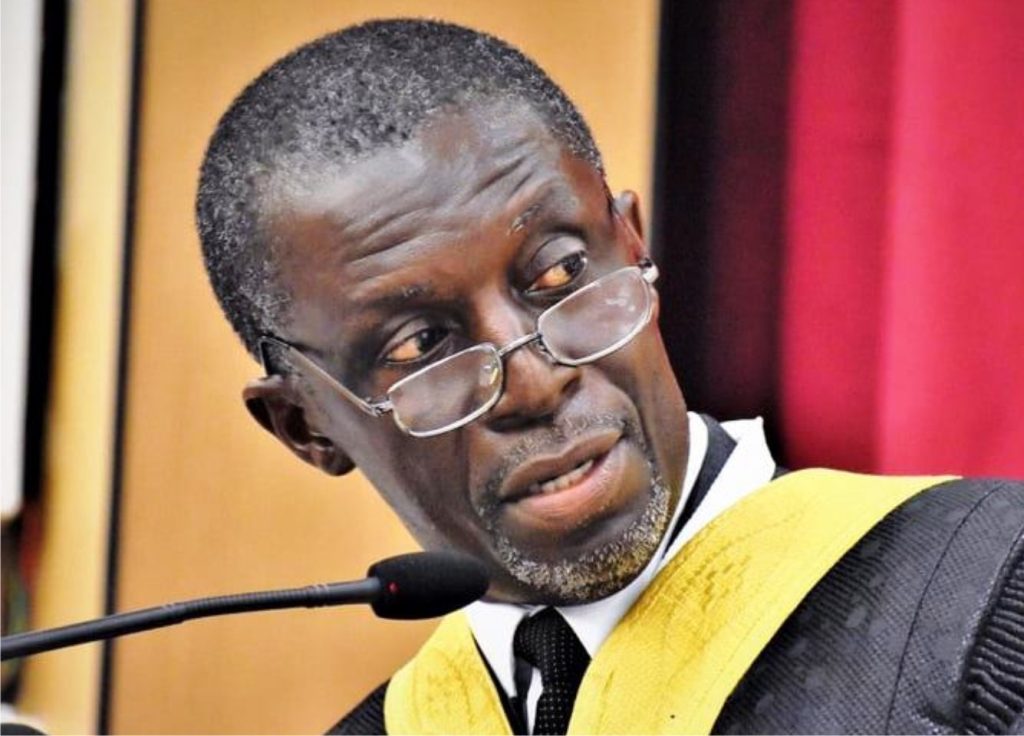Former Liberian presidential candidate, Cllr. Tiawan Gongloe, has sharply criticized President Joseph Boakai’s response to a Supreme Court ruling regarding the leadership dispute within the House of Representatives. The Supreme Court unequivocally affirmed Speaker Jonathan Fonati Koffa’s legitimacy, declaring any legislative actions taken by the opposing faction without Koffa’s presiding presence unconstitutional. However, President Boakai, while acknowledging the ruling, stated his administration would work with whichever side held a quorum, effectively side-stepping the Court’s decision and implicitly recognizing the authority of the rival “Speaker,” Richard N. Koon. Gongloe condemned this stance as a blatant disregard for the rule of law, emphasizing the finality and binding nature of Supreme Court judgments as per the Liberian Constitution. He warned that such defiance undermines the foundations of governance and erodes public trust.
Gongloe emphasized the constitutional mandate that designates the Supreme Court as the final arbiter of constitutional matters. He argued that President Boakai’s failure to fully implement the ruling constitutes a grave breach of his constitutional duty, potentially damaging Liberia’s international standing, jeopardizing its bid for a UN Security Council seat, and discouraging foreign investment. The stability and credibility of Liberia, Gongloe asserted, hinge on unwavering respect for the rule of law. He urged the President to prioritize the Constitution and the judiciary over political factions, imploring him to heed the Court’s decision before further damage is done. He underlined the importance of actions over words in demonstrating a genuine commitment to the rule of law.
Gongloe stressed that the Court’s ruling definitively resolves the House leadership dispute, reaffirming Speaker Koffa as the legitimate presiding officer. He called for universal compliance with the judgment, including from all government officials, House members, citizens, diplomatic partners, and businesses. Drawing a parallel with former US Vice President Al Gore’s gracious concession after the 2000 election dispute, Gongloe called for similar statesmanship from President Boakai, urging him to avoid ambiguity and uphold the Court’s decision.
To rectify the situation, Gongloe recommended a series of concrete actions for President Boakai. He urged the President to instruct all government officials to cease any actions or statements questioning the Supreme Court’s authority, warning that defiance could lead to disciplinary measures. He further called on all House members to respect the ruling and for all official communication to be directed to Speaker Koffa. Gongloe also recommended the withdrawal of all state-provided resources from Koon and their restoration to Speaker Koffa. He cautioned that any further defiance of the ruling invites chaos and undermines the government’s ability to serve the people effectively.
The core of Gongloe’s argument rests on the principle of upholding the rule of law and respecting the authority of the judiciary. He contends that President Boakai’s decision to recognize a quorum regardless of the Speaker’s legitimacy undermines the very foundation of Liberia’s legal system. By choosing to prioritize political expediency over adherence to the Supreme Court’s ruling, Gongloe argues, the President sets a dangerous precedent that could have far-reaching consequences for the country’s stability and international reputation.
The implications of President Boakai’s actions, as outlined by Gongloe, are potentially severe. Beyond the immediate impact on the functioning of the House of Representatives, the disregard for the Supreme Court’s ruling could erode public trust in the judiciary and create a climate of uncertainty. This, in turn, could deter foreign investment, jeopardize Liberia’s international standing, and ultimately threaten the country’s democratic progress. Gongloe’s strong words serve as a call to action, urging the President to reconsider his stance and uphold the rule of law.














